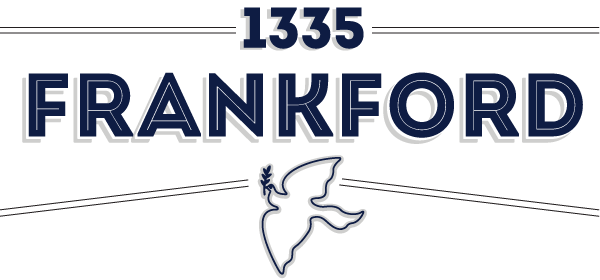
Walking into the big open room feels like walking into a cloud. Everything is white, gray, or another soft neutral. Three walls of windows create a cool, diffused light throughout the space. The gauzy light illuminates shelf after shelf of ceramic wares, freshly fired or waiting to be fired in the compact kiln in the corner.
Felt + Fat co-founder Nate Mell walks us through the square room, pointing things out with the air of someone who has done these workspace tours before – a lot of them. His co-founder Wynn Bauer is over near the kiln, listening to Nate’s tour and softly chiming in. Rufus, a friendly, curly-haired pup, follows us around the studio, sniffing and panting while Nate explains how they mix materials to create slip, the clay used to cast their ceramics.
“Our slip ingredients are pretty simple. Ceramics are a very old, natural way of making things. It’s like the geologic process, taking rock fragments, dust, mud, and subjecting them to shaping and heating to form something new,” Nate explains. He walks us past the kilns to the area where Felt + Fat production crew Stef, Martiza, Althea, and Emily are putting finishing touches on newly made mugs and bowls. The air in the studio is cool, calm, and very quiet.
In this cloud of ceramics, soft colors, and natural light, it’s easy to forget you’re standing in the middle of production of one of Philly’s youngest, most exciting, and fastest-growing craft businesses. Philly is falling in love with these ceramics for their clean, pleasing design and unique marbling. Nate and Wynn, who hold art degrees from Tyler and RISD respectively, have developed a product that hits the sweet spot between reasonably accessible and one-of-a-kind. And they’re digging into the niche.
“These days, I’m doing less production work than I used to or would like to,” Nate confesses. “I help out with all the other stuff.” He means the business stuff – in addition to supplying to retailers like Anthropologie, Felt + Fat is building up their restaurant wholesale program. Plus, there’s the legal and financial headache of owning and running a business, not to mention, the ethereal, unending task of marketing yourself.
“I took some business practice classes in school, but it doesn’t really prepare you to turn your art into a sustainable business. We had to figure a lot of things out as we went. We were in the right place at the right time, with the right friends who could help. I mostly just asked people how to do things.”
The new Philly economy, rife with lean micro-enterprises, is fertile ground for skill sharing and collaborating. Businesses are finding new and unique ways to partner on projects, to create experiences and products that fill needs, wants, and wishes. It’s inspiring to see young entrepreneurs find a foothold in this historic industrial city—and inspiring to see the city come together to help them climb.


















1 comment
SO good, I want to visit !